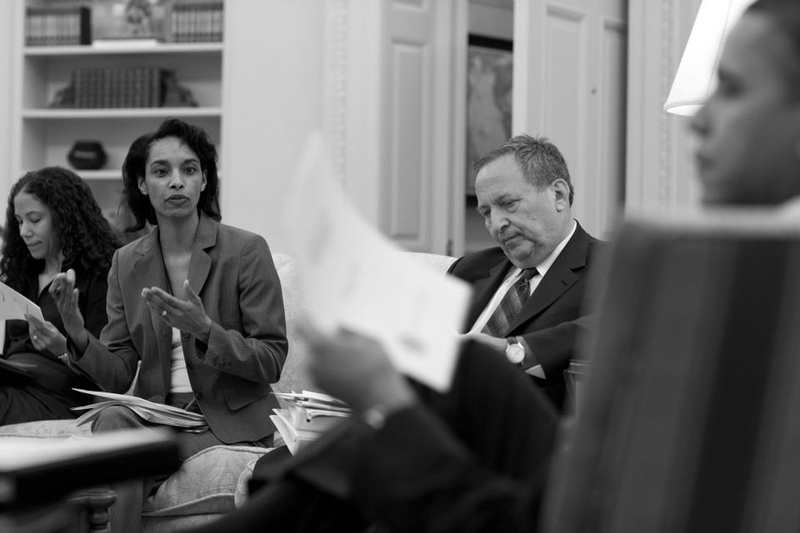Economist and Princeton professor Cecilia E. Rouse ’86 wanted to become an engineer when she first came to Harvard, but her academic path took a quick turn when she enrolled in the popular freshman course Social Analysis 10, better known as “Ec 10.”
“That was my first introduction to economics, but I was hooked,” says Rouse.
The magna cum laude graduate has since reached the apex of her profession. As a tenured member of the economics faculty at Princeton, she has served on President Barack Obama’s Council of Economic Advisers and is one of today’s leading academics on the economics of labor and education.
According to friends, Rouse demonstrated an unfettered curiosity, a compassionate persona, and an extraordinary intellect during her time at the College—and these traits have driven her success throughout her professional career.
A MULTITALENTED WOMAN
Beyond her abilities in economics, Rouse has exercised her intellect in many diverse venues, including music, languages, and social activism.
Rouse, who took French and Farsi courses at the College, also played piano and flute in University orchestras, and helped start wine tasting sessions in Adams House.
“I remember being really impressed with Ceci’s diverse talents,” writes Rouse’s former roommate Carolyn S. Stevens ’86 in an email to The Crimson. “She didn’t fit into that classic Ec major stereotype of someone getting groomed for Wall Street—she was doing so many other things.”
Professors who worked with Rouse echo similar sentiments.
“She had her own ideas at the time and did such different work,” says Claudia Goldin, a professor of economics who was Rouse’s graduate adviser.
For example, Goldin says, Rouse was interested in the economic impact of community colleges—a topic which was “marginalized and sort of pushed aside” at the time, but has become an important research topic today.
Goldin says that Rouse’s passion for music also inspired the pair to embark on a study that examined the role of gender bias in orchestral auditions.
The work was “risky” for Rouse because she was in the early stages in her career, and the research—while time-consuming—was not guaranteed to result in anything useful.
Nonetheless, Rouse pushed forward with her project, and the research eventually appeared as the lead paper in American Economic Review, a top economics journal.
JUGGLING DIFFERENT WORLDS
Read more in News
Joel Podolny













